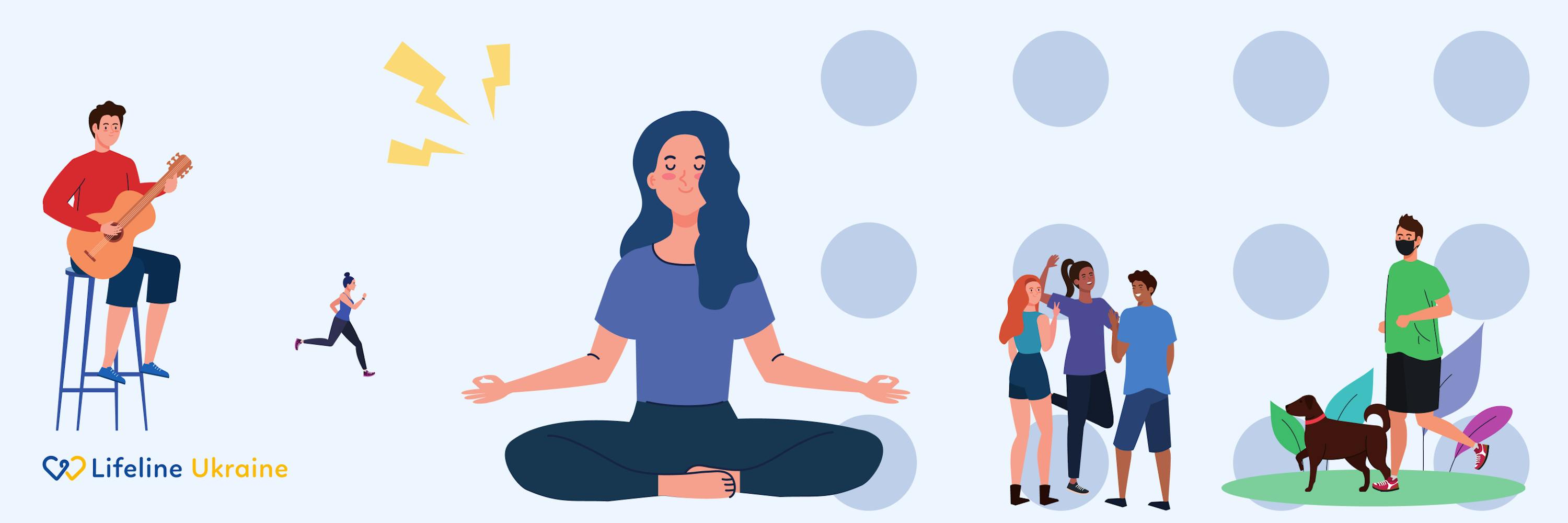According to the Global Health Assessment (2019), in 2016, the suicide rate in Ukraine was 22.4 per 100,000 people, while the age-standardized rate was 18.5 per 100,000 people. Currently, psychologists believe that a significant factor in this alarming trend is prolonged stress caused by the war.
What is stress?
Stress can be defined as the body's reaction to uncontrollable and unpredictable threats perceived as life-threatening.
It is an integral survival mechanism embedded in our genetic structure. Unlike animals, which experience acute tension in response to immediate danger, humans can endure prolonged (chronic) stress. In this state, the stress response does not subside because the mind convincingly signals that the danger persists, thus keeping the person in a constant state of alertness.
How does stress affect the body?
The American Psychological Association (APA) explains that stress affects various body systems, such as the respiratory, musculoskeletal, cardiovascular, endocrine, digestive, nervous, and reproductive systems. The stress response results from coordinated actions at all levels of the body. Muscle tension is an automatic reaction to stress that serves as a protective measure against injuries and pain.
How does chronic stress affect the body?
During sudden stress, the muscles instantly tense and relax as soon as the stressor disappears. However, chronic stress causes prolonged muscle tension, which in turn triggers other physical reactions and contributes to the development of stress-related disorders. For example, chronic tension in the muscles of the neck, shoulders, and head often leads to headaches and migraines. Work-related stress causes pain in the lower back and arms. Additionally, chronic stress can cause inflammation in the coronary arteries and circulation in general, which can affect cholesterol levels.

Several methods can be used for effective stress management:
- Practice breathing techniques;
- Go for walks in the fresh air;
- Engage in physical activity, especially yoga;
- Try meditation;
- Engage in activities that bring joy and satisfaction.
- Ensure a good night's sleep;
- Spend time with animals, as this can be therapeutic.
- Develop a routine with regular exercise, sleep, and hobbies;
- Read books and watch films that provide relaxation and inspiration;
- Seek help from a psychologist or mental health professional.













